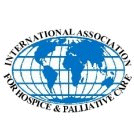IAHPC Traveling Scholar's Report
A Brief Report on my Attendance at the 11th Congress of the European Association for Palliative Care (EAPC) in Vienna, Austria
(7th - 10th May, 2009)
by Dr. Olatunji Alese
Clinical Fellow
University College Hospital
Ibadan, Nigeria
Palliative care is currently the most promising avenue for the development of effective management of symptoms of patients with terminal illnesses, especially for those with advanced cancer which unfortunately is a major concern in many developing countries. Late presentation to palliative care programs is the result of an erroneous belief that the end of life is agonizingly painful for those who have undergone diagnostic and therapeutic procedures at orthodox treatment centers. The populace can, and should be, educated that a terminal illness can be pain-free if they present early to appropriate palliative care facilities.
I expected that the Congress would provide an opportunity for me to observe and learn about the current trends in palliative/hospice care – I was not disappointed. There was a rich collection of parallel symposia which made choosing which to attend difficult. I was able to network with colleagues from other parts of the world and I found the ‘Meet the Expert’ sessions very helpful. It would have been very difficult to entirely resolve my questions through reading journals and accessing Internet resources. The interactive plenary sessions were also a helpful resource that advanced my knowledge of how to control pain during the various stages of the terminal illness.
A central theme of the congress was to discuss the current state of the Budapest Commitment. An analysis of the experiences of the German, Danish and Austrian associations provided several important points about the development of effective palliative care at the national level. It was clear from the sessions, that it is important to have effective teamwork and collaboration with the political machinery. In Nigeria, the interdisciplinary management module is a very primal concept in an environment that critically needs it. It was interesting to see how other countries had developed effective programs which hopefully will help us avoid some of the mistakes they made.
The need to remain functional at end of life, and to enjoy the things we love to do was promoted during the congress. This was highlighted during the opening ceremony when the case history of Johann Sebastian Bach was discussed. It is essential to remember that palliative care should indeed add life to days, rather than to focus on adding days to life.
It is with immense gratitude, that I thank the International Association for Hospice and Palliative Care (IAHPC) for their financial support to attend this exciting congress in the beautiful city of the many celebrated composers like Straus, Mozart, Beethoven, Schubert, and Haydn. |

